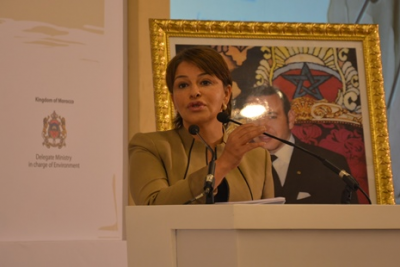
By Sellina Sheena Nkowani from Rabat Morocco
At the launch of the Post-2015 Sustainable Development Goals (SDGs) last month, former United Nations General Secretary, Kofi Annan disclosed that Sustainable development goals can only be successful if they are successful in Africa.
The SDGs which build on the Millennium Development Goals (MDGs) whose mandate ended this year, represent a collective global push to tackle the root causes of poverty, by focusing on issues of justice, inequality and equity.
Some of the set targets in SDGs are the need to protect future generations by limiting climate change, adopting renewable energy and managing resources sustainably.
The most lingering question in climate change talks has been whether Africa, whose rapidly growing population urgently require the attainment of the SDGs, can do without limiting climate change effects.
In a resounding response to this question, Moroccan Minister Delegate in Charge of Environment, Hakima El Haite, says yes, Africa can achieve sustainable development that does not hurt the environment.
In her opening remarks at the Intended Nationally Determined Contributions (INDCs) Forum taking place in Rabat, Morocco, Haite said so far the INDCs submitted by most African countries, Malawi inclusive, show that countries can achieve climate change goals such as reducing the global warming below average of 2 degrees Celcius.
INDCs are the pledges that countries have put forward describing what they plan to do about climate change. Each INDC outlines the steps countries plan to make to reduce green house gas emissions. They address adaptation and mitigation plans as well as the support each country needs from or will provide to other countries. They essentially form the basis for the United Nations Framework Convention on Climate Change ( UNFCCC) Conference of Parties (COP21) talks in Paris, France in December 2015.
“Africa has the highest opportunity to develop sustainably. We have untapped resources such as the sun, therefore, renewable energy production should not be out of reach for us,” she said.
Haite stressed the need to keep in mind that climate change is not just about the sciences but, it is about development, health,security, water and most importantly, it is about people’s dignity. She therefore, applauded countries for aligning most of their INDCs with these needs.
Emphasising on sustainable development, United Nations Development Programme’s (UNDP) Assistant Administrator and Director of Policy and Programme Support, Magdy Martinez-Soliman, said that any development undertaken without considering its long term effects on the environment is unsustainable.
UNDP has provided technical support to 37 countries to help them build, produce and communicate their INDCs to the UNFCCC. Malawi which submitted its INDCs on October 1 2015, is one of the countries supported by UNDP to produce INDCs.
The INDCs Forum is organised by the Moroccan government, UNDP, European Union (EU) and United Nations Environment Programme (UNEP). The meeting ends on Tuesday October 13 2015.











